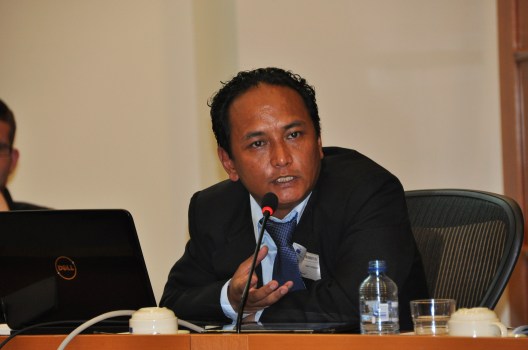In the five years following China’s once-a-decade leadership change in 2012[1], Xi Jinping has become more powerful than any of China’s leaders of the last 25 years, and looks set to further consolidate this power at the 19th Party Congress of October 2017.
Xi’s leadership has been characterised by a wholesale effort to silence dissent across a range of issues, not least relating to China’s continued occupation of restive Tibet. Human rights experts widely agree that the situation in Tibet and across China has sharply deteriorated since 2012, perhaps illustrated most starkly by the deaths in custody of highly prominent human rights defenders; the Chinese dissident and Nobel Peace Laureate Liu Xiaobo, and Tibetan buddhist leader Tenzin Delek Rinpoche.
In his inauguration speech[2] on 15 November 2012, Xi Jinping made clear that his leadership represented a new, clean start, and he began his tenure with a war on corruption. This was a well-calculated move that gained him the favour and approval of the Chinese people, since corruption is extremely widespread and pervades almost every aspect of the social, political and economic life of the country.
It is now widely believed that Xi Jinping has used this anti-corruption campaign to consolidate his overwhelming influence and silence any opposition; attacking, replacing and imprisoning under the accusation of corruption anyone who might represent a threat to his growing power.
While his anti-corruption campaign has been carried out throughout China, since 2012 Xi Jinping has paid even greater attention to silencing opposition in the restive areas of Tibet, East Turkestan (CH: Xinjiang) and Hong Kong, where Beijing has always struggled to maintain “social stability”.
For the past five years, Chinese authorities have implemented harsh directives from Beijing that aim to silence opposition and increase China’s stranglehold of Tibet. Following a decades-long trail of violent crackdowns, de-facto martial law, widespread arbitrary imprisonments and neglect of the most basic human rights, Xi Jinping has sought to tighten his grip over Tibet responding to any dissent or peaceful, non-violent protests with violence and imprisonment[3].
Check out the website: www.XiFailsTibet.org
Similarly, Beijing regularly increases military presence in Tibet at sensitive times: the most recent example for this trend is the “huge military exercise in Lhasa ahead of the 19th Party Congress” carried out on 26 September 2017 and reported by Tibetan activist and blogger Woeser[4]. Chinese officials at the military display used the event to publicly pledge “loyalty to the Party, keeping the mission firmly in mind, countering terrorism and violence, governing borderland and stabilising Tibet”[5].
Official statistics show that China’s military and security presence has dramatically expanded across Tibet since 2012[6], arbitrary imprisonments have increased in number and torture has been found to be in widespread practice in prisons and detention centers[7], so much so that between 2013 and 2015 as many as fourteen Tibetan political prisoners died while in detention[8]. Everyday activities, including education and religion, are heavily monitored, and a “grid surveillance system”[9] has been put in place in the Tibet Autonomous Region (TAR), and is currently under expansion in parts of Qinghai Province[10].

Under Xi, the violent crackdown on human rights in Tibet has been paralleled by a top-down economic development approach, which has alienated even further the largely rural Tibetan population.
Millions of Tibetan nomads, the traditional stewards of the Tibetan grasslands, have been forced to relocate to sedentary lives in “New Socialist Villages” giving up their livelihood and livestock. China’s main justification for resettlement policies are economic but it has also been made clear that the policies are an integral part of larger political objectives to combat “separatist” sentiment among Tibetans, and are designed to strengthen political control over the Tibetan rural population[11].
Tibetan rivers, fundamental to local herders and communities’ livelihoods, have been diverted and dammed to fuel Chinese megacities and factories through hydroelectric, “clean” power[12], and unregulated mining activities are widespread across the Tibetan plateau, severely damaging the fragile Tibetan ecosystem[13].
Infrastructure development on the plateau is aimed at bringing millions of tourists to Tibet: Lhasa, with a total population of one million, is estimated to receive as many as 13 million domestic Chinese tourists each year, overcrowding a city where financial gains and profits are largely kept in the hands of Chinese private investors, leaving local Tibetans with little if any sustainable profit[14].
While the Tibet Autonomous Region (TAR) and the other parts of Tibet have seen a substantial increase in their Gross Domestic Product (GDP), economic development has mainly benefited Chinese investors and a limited proportion of the Tibetan population. The bulk of the Tibetan population is bearing the brunt of development, whilst the authorities have systematically and violently silenced any form of opposition.
It is important to notice that GDP growth in Tibet is strongly subsidised by the central government. Subsidies account for a substantial part of the TAR GDP and they have steadily increased since 2008[15]: for example, in 2010 central subsidies accounted for more than 100% of the province’s GDP[16], while the 2017 budget for the TAR reports an increase of 22.3% in state subsidies[17]. These figures show that the TAR economy heavily relies on government aid, and its growth is far from sustainable.
This report highlights China’s policy failures in Tibet; policies that over nearly seven decades of unfettered control have left Tibetans resolutely opposed to China’s rule. The number of solo protests against China’s rule and self-immolations carried out across Tibet has increased in the five years since Xi Jinping’s appointment. Xi is presiding over a Tibet in crisis, devastated by five generations of colonial exploitation but possessing a population whose sense of the Tibetan nation, and whose spirit and diverse resistance to China’s rule is undiminished since the day the People’s Liberation Army invaded Tibet nearly 70 years ago.
Xi Jinping must now recognize that the impact of continuing the same path will only result in greater resistance in Tibet and that his failure to uphold essential human rights should be met by growing international condemnation of his leadership.
How Xi is Failing Tibet
“[We] should thoroughly fight against separatist activities by the Dalai clique by firmly relying on all ethnic groups… and completely smash any plot to destroy stability in Tibet and jeopardise national unity”
Xi Jinping, July 2011
Suffocation of Dissent
Under Xi’s propaganda campaigns, aimed at building and disseminating a positive, benevolent and rosy image of him both nationally and internationally, his persona has been strengthened and an image created that is at odds with the reality of Xi’s Presidency. Xi, rather than a saviour of the global order, has rigidly silenced dissent, most widely through institutional mechanisms that “legalise” crackdowns on any kind of opposition.
Following the Tibetan Uprisings of 2008, when hundreds of non-violent demonstrations against China’s rule took place across Tibet, Beijing implemented a ‘stability maintenance’[18] policy to give authorities legal means to arrest thousands of individuals under charges of “terrorism” or as a “threat to national stability”. As a result thousands of Tibetans from all walks of life – lay and religious alike – have and continue to be routinely arrested for minor acts of resistance.
Arrest and imprisonment of Tibetans in Tibet can be for the simplest of actions such as storing a picture of the Dalai Lama on a mobile phone or celebrating his birthday[19] [20], discussing the Tibetan exile government on social media[21] protesting against mining activities[22], advocating for the teaching of Tibetan language in schools[23] or calling for the return of the Dalai Lama to Tibet[24].
Even protests that, under China’s own constitution, should be deemed lawful, and do not seek to challenge the occupation of Tibet, receive politically motivated reactions and are widely labeled as “endangering state security’”, “splittism” or even “terrorism” by the authorities, resulting in serious charges and severe sentences for those who carry out simple non-violent protests or actions.
An example is the case of Tashi Wangchuk, a young Tibetan shop keeper currently awaiting trial who was charged with “inciting separatism” after he openly urged for greater Tibetan language education in schools. If found guilty he faces up to 15 years in prison. Tashi Wangchuk was detained on 27 January 2016 after criticising China’s failure to adhere to its own Constitution in which the right to an education in the Tibetan language is guaranteed. However Chinese has increasingly become the predominant language of instruction in Tibet, often being the exclusive language taught. In 2015 the New York Times[25] featured Tashi Wangchuk and the work he was doing to push for Tibetan language rights, in which – although critical of China’s language policies – he had never written about Tibetan independence. His case is a striking example of the severity of the persecution Tibetans face for simply calling for their rights under Chinese law; rights that are perceived as a threat by the Chinese government despite the fact they are protected by international human rights laws and under the Chinese Constitution.
China’s focus on the threat of Tibetan “separatism” was underlined in the Sixth Tibet Work Forum in August 2015, in which the Dalai Lama was specifically blamed for “anti-separatist” activities and the importance of “stability” was emphasized, described by the International Campaign for Tibet as “political language for the elimination of dissent and enforcement of compliance to Chinese Communist Party policies”[26].
A Human Rights Watch report published in 2016 argues that the provocative measures adopted by China to ensure ’stability’ are contributing to, rather than crushing, unrest in Tibet. In “Relentless: Detention and Prosecution of Tibetans under China’s ‘Stability Maintenance’ campaign”, Human Rights Watch illustrated China’s significant increase in state control over daily life through the deployment of more than 21,000 party officials across the TAR and 10,000 in Qinghai Province, in a capillary surveillance scheme known as the grid system[27]. Party officials are now installed in virtually every village and monastery of Tibet, and are ready to report on every act of opposition to Xi Jinping taking place on the plateau.
With at least 479 Tibetans detained for political reasons in the period 2013 – 2015, Human Rights Watch concluded “the implementation of these measures appears to explain many of the new patterns of detention, prosecution, and sentencing documented. It was only after the rural phase of the stability maintenance policy in the TAR was implemented from late 2011 that the number of protests and resulting detentions and convictions increased dramatically in that region.”
While the majority of Tibetans who are arrested every year have carried out minor acts of dissent, those who receive the harshest sentences are the individuals who engage in or are accused of supporting self-immolation protests. The first self immolation protest in Tibet took place in 2009, but there was a dramatic increase in such protests during 2011, peaking in 2012 as Xi Jinping became China’s top leader.
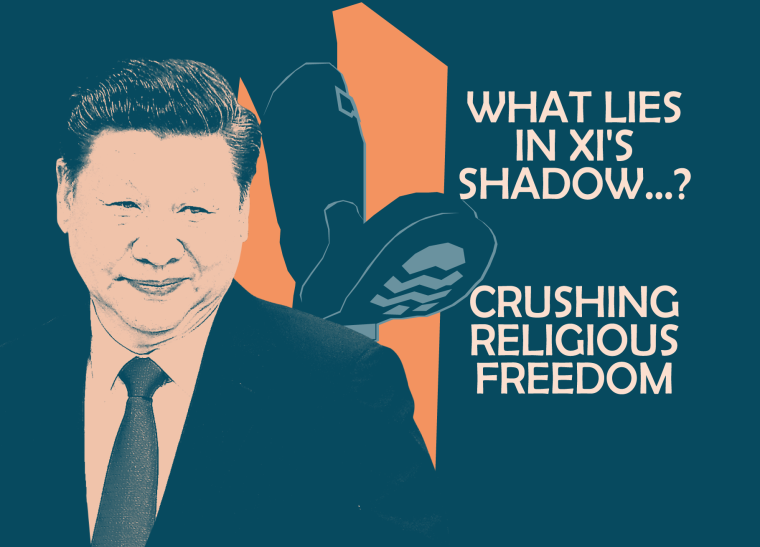
To date, there have been at least 150 confirmed self-immolation protests in Tibet, in which many of those individuals protesting call for freedom for Tibet and the return of the Dalai Lama. It is possible that this number may be higher due to the difficulties of information reaching exiled communities: sharing information regarding protests and self-immolations often leads to a prison sentence under the accusation of revealing “state secrets” with “overseas terrorist groups”.
“Collective Punishment”, or the deliberate targeting of families and communities of self-immolation protesters, escalated in 2013, with harsh directives issued in the Tibetan areas of Driru[28] [29] and Dzoege[30] detailing threats ranging from losing the right to cultivate land or access jobs, investment in the community, to prohibitions on individual freedoms that would result in punishment.
State control also extends to journalists and foreigners who are barred access to Tibet at sensitive times including during the 19th Party Congress[31]. China’s government also habitually bans entry to Tibet to foreigners in the month of March, being the anniversary of several major Uprisings against China’s rule, notably in 1959 and 2008[32].
Outside of such closures, journalists are rarely able to report first hand on the situation in Tibet due to restrictions on media access. State run media tours for foreign journalists are infrequent and often limited to handpicked media outlets, with those participating prevented from travelling freely or talking to locals not pre-selected by the authorities. Simon Denyer of the Washington Post wrote how he was able to livestream on Facebook during a visit in 2016, but also about the restrictions he experienced first hand: “At the turnoff to the monastery, police were waiting for us, briefly questioned us and then sent us back to the hotel. At least six security officials were stationed in the lobby and at the hotel gate to make sure we didn’t leave again. Clearly, officials in Nyingchi were determined to prevent us from speaking to any monks.” [33]
To silence dissent outside of Tibet, Xi Jinping is directing a strong and consistent crackdown on human rights activists across China, East Turkestan (Xinjiang) and Hong Kong. Since July 2015 more than 250 Chinese human rights lawyers have been arbitrarily arrested, often kept incommunicado, tortured and forced to provide fake confessions[34]. East Turkestan is currently under intense security[35] and information about the condition of prominent Uyghur political prisoner, the academic Ilham Tohti imprisoned for life in 2014, is non-existent[36]. Security around the home of Southern Mongolian dissident, Hada, who is under house arrest, was reportedly stepped up in recent weeks[37]. China has taken steps to silence democracy campaigners in Hong Kong, with 16 activists including three prominent student leaders jailed in August 2017[38]. In events that have further soured cross-Straits relations, Taiwanese NGO worker Lee Ming-cheh – who had disappeared in China in March 2017 – this month confessed to “subverting state power” by disseminating articles critical of China’s Communist Party and promoting democracy[39]. China’s escalation of legislation to tighten political control prompted four governments and the EU to write to Xi Jinping and express concern about proposed laws on “counter-terrorism”, cyber-security and the control of foreign NGOs[40].
Political Detention and Deaths in Custody
The conditions in prisons and detentions centres in Tibet, and the treatment of Tibetan political prisoners, are extremely poor. Testimonies from former political prisoners collected by a variety of NGOs detail evidence of the widespread use of torture as a method to extract confessions[41]. Reports indicate political prisoners are regularly beaten and there are repeated instances of detainees being subjected to electric shocks, being hung from the ceiling for periods lasting several hours, and shackled to a “Tiger” or interrogation chair.
In 2015 the UN Committee against Torture reviewed China and[42] concluded that torture is “deeply entrenched in the criminal justice system” emphasising the ”numerous reports from credible sources that document in detail cases of torture, deaths in custody, arbitrary detention and disappearances of Tibetans”. The Committee expressed strong concern for the endemic lack of access to lawyers and to adequate medical treatments, for widespread arbitrary arrests of people who are kept incommunicado for long periods, as well as for the routine use of torture and the general ill-treatment of prisoners.
Severe prison conditions have led to the death of a number of Tibetan prisoners. The most prominent case is Tenzin Delek Rinpoche, a reincarnated Lama who died on 12 July 2015 after 13 years in detention.
Tenzin Delek Rinpoche, born in 1950, was a revered Lama from Eastern Tibet who was very active in his community, initiating public projects such as orphanages, schools and old people’s homes. Despite his long track record of community service, in 2002 he was arrested and falsely accused by the authorities of being involved in two bomb explosions in Chengdu, the capital of Sichuan Province. While he was initially sentenced to death on charges of “terrorism and inciting separatism”, his sentence was later changed to life imprisonment. Throughout the years of his detention Tenzin Delek Rinpoche maintained his innocence through audio and written messages.
Prison conditions for Tenzin Delek Rinpoche were particularly harsh. He was denied the right to family visits, which is enshrined in Chinese Prison Law, and continuous maltreatment resulted in his critically ill health.
While the authorities’ official version is that he died of cardiac arrest, his niece Nyima Lhamo was one of the only people who were allowed to see his dead body to perform funeral rites, and she noticed signs of torture. She subsequently decided to flee Tibet and escape to India, leaving her child behind her, to make sure that the world outside of China knew what really happened to her uncle Tenzin Delek Rinpoche and how he had been tortured[43].
In order to decrease the number of deaths in custody, China frequently discharges terminally ill prisoners. This has been the case for several Tibetan political prisoners, such as Ngawang Jampel, Goshul Lobsang and Tenzin Choedak[44], who were sent home from prisons and hospitals when it was obvious that their health was inevitably compromised as a result of torture and mistreatment, and that they would die soon.
Whilst such victims are less well known, under Xi Jinping’s rule there have been flagrant cases of death in custody where the victims were outspoken and high profile human rights activists. In addition to Tenzin Delek Rinpoche, Chinese Nobel Peace Laureate Liu Xiaobo and human rights lawyer and activist Cao Shunli have both died in custody since 2012.
Once a professor at Beijing Normal University, Liu Xiaobo was first incarcerated for 21 months after the 1989 Tiananmen massacre for his role in supporting students who had participated in the protests. He was imprisoned again and held in a labour re-education camp between 1996 and 1999 for his public criticism of Chinese policies towards Taiwan and the Dalai Lama. In 2009 he was sentenced to 11 years in prison for his involvement with Charter ’08, a manifesto calling for political reforms in China[45].
While serving his term in a prison in Liaoning, Liu Xiaobo was awarded the 2010 Nobel Peace Prize “for his efforts to implement the fundamental human rights secured in international instruments as well as in the constitution of the People’s Republic of China.”[46]
In June 2017, after serving eight years of his sentence, Liu Xiaobo was transferred to hospital suffering from liver cancer, but kept under the authorities’ strict surveillance. Despite pressure from the international community, the Chinese government denied Liu Xiaobo permission to seek treatment overseas. The Nobel Peace Prize laureate died in July and his wife Liu Xia is currently missing. Leaders and politicians around the world expressed concern about the way Liu Xiaobo was treated[47] but greater pressure needs to be brought to bear on China to ensure the safety of Liu Xia.
Cao Shunli’s case is another tragic example of death in custody at the hands of Chinese authorities. Cao was arrested after staging a two-month long sit-in along other activists, asking the authorities to allow her to participate in China’s Universal Periodic Review. She was stopped by the police in September 2013 at a Beijing airport while trying to reach Geneva to attend a human rights training programme, and was formally arrested the following month. She was suffering from several conditions, including tuberculosis, uterine fibrosis and liver disease, but was denied medical treatments while in detention. She died in March 2014, and her family and lawyer were not allowed to see her body[48].
Religious persecution
Tibetan monks and nuns have played a crucial role in outwardly demonstrating against China’s rule in Tibet since 1959, and as a result represent the majority of Tibetan political prisoners: in the 1980s they comprised as much as 90% of these arrests, and in the first two years of Xi Jinping’s leadership (2013 – 2015) they were close to 40%[49].
With monks and nuns at the forefront of Tibetan resistance, monasteries and nunneries are targeted by authorities in an attempt to prevent anti-government activism. As reported in the previous chapter, surveillance of monasteries and nunneries across Tibet has increased under the grid system, with growing numbers of Communist Party officials installed on Tibetan institute management committees[50], vastly limiting religious freedom.
Compulsory “patriotic re-education” sessions have become increasingly common in Tibetan monasteries and villages: such sessions can last for months at a time, and they often require participants to sign declarations in which they are forced to reject Dalai Lama[51].
According to a recent Freedom House report on religious freedom in China and Tibet, “new measures imposed since November 2012 include punishing assistance to self-immolators, canceling previously permitted festivals, increasing restrictions on private religious practice, and more proactively manipulating Tibetan Buddhist doctrine and selection of religious leaders.”[52]
In September 2017, revised rules on religious activity were issued by China’s State Council and further harsh conditions incorporated. With religious practices in Tibet increasingly associated with ‘threats’ to Chinese national security,[53] nuns, monks and lay Buddhists are more likely to be accused of “splittism” and “terrorism”, or of being part of the so-called “Dalai clique”. These revised rules can be seen as a consolidation of the far-reaching powers of Beijing in Tibet and an additional threat to the continued survival of Tibetan Buddhism in Tibet.
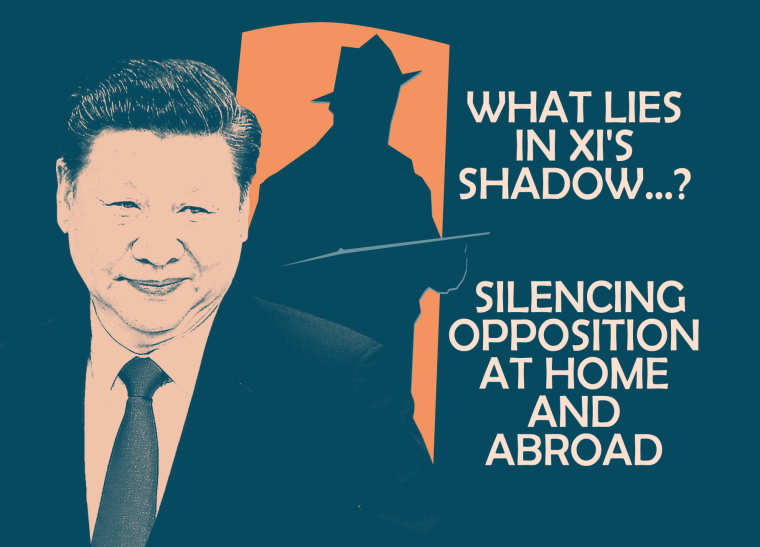
The exiled Tibetan religious leader, the 14th Dalai Lama, has for decades been at the core of hatred and vilification campaigns. Despite the efforts of the government, Tibetans still have a profound respect for the Dalai Lama and long for his return to Tibet.
The Dalai Lama left Tibet in 1959 as a direct consequence of China’s occupation, and he has not been able to return. In the many decades that the Dalai Lama has spent in exile, the Chinese government has always tried to discredit him in the eyes of Tibetans and Chinese people, describing the Nobel Peace Laureate as a “wolf in sheep’s clothing”, a “terrorist”, an “enemy of the Chinese state” and a threat to social stability and security.
Most recently, following Xi’s hardline stance on the Dalai Lama, local authorities in Tibet have established a zero-tolerance policy for those who secretly or openly worship the Dalai Lama. Owning or selling his photo has become illegal, and storing his teachings is considered a serious crime, punishable with lengthy prison sentences. Similarly, when two senior monks organised ceremonies to pray for the Dalai Lama’s good health, they were arrested and received harsh and lengthy sentences[54].
Local and national press are periodically swamped with articles vilifying the exiled religious leader, and in 2016 the Chinese national newspaper Global Times cited Lian Xiangmin, of the China Tibetology Research Centre in Beijing, as saying that for Chinese people, displaying the Dalai Lama’s picture was the same as Saddam Hussein’s image would be for Americans[55].
Likewise, in a further attempt to control religious matters, Chinese authorities are claiming the right to select the next reincarnation of the Dalai Lama. Nevertheless, the Dalai Lama has consistently maintained that he might reincarnate in exile or he might decide not to reincarnate at all, making it clear that the choice over his reincarnation definitely does not lie in the Chinese government’s hands.
In January 2016 the Chinese authorities issued an online database of Communist Party approved Tibetan Buddhist reincarnations (Rinpoche) or ‘Living Buddhas’[56]. Notably, the spiritual leader of the Tibetan people, the Dalai Lama, does not appear on the government-approved list, with the official TAR government website claiming he is not included because he has lived outside Tibet for so long, and “the fact that the database doesn’t list him in the “realm of [Rinpoches] is just inevitable and right”[57].
Popular Kalachakra teachings were held by the Dalai Lama in Bodh Gaya, Northern India, in January 2017 and many Tibetans from Tibet tried to obtain travel documents in order to participate. Authorities reacted by revoking the passports of Tibetans across the plateau, and threatening retaliation “for generations” against the families of those who managed to cross the border to India to attend the Kalachakra[58]. As a result the few Tibetans who did manage to attend the teachings in Bodh Gaya left almost immediately in fear that something might happen to their family members back home.
Religious leaders who remain in Tibet have also often been directly targeted by the Chinese authorities in an attempt to limit their influence. The most egregious example is Tenzin Delek Rinpoche, whose case is outlined in the previous chapter, but in December 2013, the popular and respected senior monk and social activist Khenpo Kartse (layname Karma Tsewang) was detained. His arrest sparked mass demonstrations and a rare silent vigil outside his prison in December 2014. After being held for almost a year without trial, he was sentenced in a secret trial to two and a half years’ imprisonment, and released in July 2016[59].
Further State control of religious freedom can be seen in China’s efforts to curb the number of buddhist practitioners allowed to reside in Tibetan nunneries and monasteries. In the past year, Chinese authorities have demolished swathes of Larung Gar and Yachen Gar, two world-renowned Buddhist institutes in Eastern Tibet[60].
Around 7,000 houses and buildings have been demolished and at least 6,500 Tibetan monks and nuns have been expelled from these two centres alone. Many of these practitioners have been forced to undergo humiliating patriotic re-education sessions, performing dances and singing in military uniforms[61] and have been sent back to their villages of origin with official notices that bar their return to the institutes that had been their homes for years[62]. Furthermore, recent evidence has shown that there are also plans to develop Larung Gar as a tourist destination with growing concern that we will see the renowned institute transformed into a low quality Disneyland-style tourist site.
Silencing the International Community
Following the example of Mao Zedong, Xi Jinping is paying a great deal of attention to building his image, both nationally and internationally. Since he came to power in 2012, Xi’s government has increased its efforts to change the negative view the world holds of China’s human rights record through soft power, direct threats, political influence, infiltration of universities, manipulation of international media, trade deals and blunt propaganda[63].
In the last five years there have been heavy-handed cases in which China dictated conditions over national policies in foreign countries. In 2014, Chinese pressure on Spain prompted the Spanish government to make legislative changes undermining the country’s adherence to the principles of “Universal Jurisdiction”, and thereby forcing the closure of high profile court cases under which former Chinese leaders had been indicted for their actions in Tibet[64]. Following a visit of the Dalai Lama to Mongolia in late 2016, Chinese authorities threatened to stop investing in the country if the exiled Tibetan religious leader was invited again in the future[65]. Likewise, in April 2017 China tried to pressure India to prevent the Dalai Lama from travelling to Arunachal Pradesh, an Indian state with a large Tibetan population neighbouring Tibet[66].
Governments have also come under pressure to prevent human rights campaigners from protesting when Xi Jinping travels abroad. The Swiss authorities imposed a ban on protests during Xi’s visit in January 2017[67] and in the UK in October 2015, British authorities detained a number of protesters, including two Tibetans and also Tiananmen survivor and human rights activist Shao Jiang[68].
Most recently Human Rights Watch denounced the level of threats and influence that China is exercising at the United Nations (UN). These tactics take the form of systematic attempts to silence and threaten human rights activists and NGOs, cut the budget for UN human rights observers, as well as the harassment and intimidation of UN staff[69].
A propaganda strategy deployed in recent years is to buy space in international media outlets, thus expanding the outreach of the government media mouthpiece Xinhua – China Daily. Inserts or wrap-around covers of internationally-respected newspapers such as the US’s “Washington Post” and UK’s “Daily Telegraph” are not uncommon[70].
Similarly, Chinese presence and influence within international universities has grown dramatically in the past few years and increasingly since Xi’s appointment. Confucius Institutes and other Chinese academic bodies bringing funds to international universities impose censorship on the content of teaching and research. For example, most recently China tried to censor the academic journal China Quarterly, from Cambridge University Press (CUP). While CUP initially agreed to delete disputed articles in China, following strong pressure from the international academic community they reinstated the original content[71].
While CUP has managed to maintain its rigour and impartiality for now, other universities and publishers remain under strong pressure from the Chinese government and investors. The University of California in San Diego recently saw a cut in Chinese state investments after it hosted the Dalai Lama for a graduation speech in June 2017[72].
Chinese overseas influence is of course not limited to the media and academia. China is buying the favour of other countries through trade and investment plans including the massive infrastructure project known as One Belt One Road initiative (OBOR). This project – strongly linked personally to Xi Jinping – will connect more than 60 countries throughout Asia, Europe and Africa through renewed infrastructure[73]. Flooding developing and developed countries alike with investment, the Chinese government is buying the favour of local politicians, traders and investors.
Recommendations
We call on Xi Jinping to adopt a paradigm shift in the Chinese Communist Party’s approach to Tibet that gives full agency over formulating future policies to the Tibetan people, by first acknowledging its failures and the illegitimacy of its military rule over Tibet. Xi Jinping must commit to a just and lasting resolution that recognizes the Tibetan people’s right to self-determination under international law. Xi Jinping must implement the following recommendations immediately:
- Stop the Chinese government’s use of military force to crackdown on the Tibetan people. Withdraw security forces from monasteries and places where protests have taken place.
- Allow immediate and unfettered access to Tibet by foreign media, diplomats, international observers and foreign tourists.
- Cease the harsh and systematic repression of religious and cultural life in Tibet, and suspend with immediate effect the Chinese government’s patriotic education programme.
- Halt all economic and development policies detrimental to safeguarding the prospects and livelihood of the Tibetans. Reduce the dependency of the Tibetan economy on Chinese government subsidies by favouring bottom up, sustainable development models that offer opportunities to disadvantaged Tibetans and cease all financial incentives for Chinese settlement onto the plateau and allow the Tibetans to be full partners in all decisions over land use in Tibet.
- Stop environmentally destructive mining and damming projects, and engage with downstream nations to implement bottom-up participatory management of Tibet’s water resources.
- Release all political prisoners detained for engaging in peaceful protest, arbitrarily detained or sentenced without a just trial in accordance with international law immediately and unconditionally.
We call on world governments and international institutions to:
- Express strong public condemnation of China’s intensifying religious and cultural repression in Tibet, with specific reference to widespread programmes of “patriotic education” and harsh measures to punish individuals for peaceful expression of their cultural and political freedom.
- Seek to send diplomats to affected areas and demand from China assurances that foreign journalists be allowed unfettered access to the TAR and Tibetan areas of Sichuan, Qinghai, Gansu and Yunnan.
- Expand capacity to monitor the situation in Tibet, including continuing to push for greater access to Tibet. Initiate or elevate efforts to establish a diplomatic presence in Lhasa, and expand existing resources within Beijing embassies for monitoring.
- Raise strong concerns over the failure of economic and development policies in Tibet, including the lack of Tibetan participation in shaping these policies.
- Increase programmatic support for Tibetans in Tibet and for programmes that facilitate information exchange between Tibetans in exile and in Tibet.
[1] https://www.theguardian.com/world/2012/nov/15/xi-jinping-communist-party-chinese
[2] http://www.bbc.co.uk/news/world-asia-china-20338586
[3] http://tchrd.org/yushu-mine-protest-crackdown-exposes-chinas-nature-reserve-sham/
[4] https://twitter.com/degewa/status/916489179776786432
[5] http://xz.people.com.cn/n2/2017/0927/c138901-30782227.html
[6] For example see Qinghai government website article describing an increase in police presence especially around sensitive times: http://www.qh.gov.cn/zwgk/system/2017/01/01/010246569.shtml. See also the Five Year Plan for the TAR (2016-2021) there will be a increase of military-civilian integration in the TAR http://www.xzxw.com/zw/qwfb/201604/t20160423_1194984.html, and China’s stepped-up border presence. http://www.scmp.com/news/china/diplomacy-defence/article/2103135/was-chinas-military-drill-tibet-really-just-exercise
[7] http://www.hrichina.org/sites/default/files/cat-chn-co-5-en.pdf
[8] https://www.hrw.org/report/2016/05/22/relentless/detention-and-prosecution-tibetans-under-chinas-stability-maintenance
[9] The grid system has seen the deployment of thousands of CPC officials across the TAR and Qinghai province, resulting in a strong surveillance and monitoring mechanism. https://www.hrw.org/news/2013/03/20/china-alarming-new-surveillance-security-tibet
[10] http://www.tibetwatch.org/china-bulletin.html
[11] https://www.hrw.org/report/2013/06/27/they-say-we-should-be-grateful/mass-rehousing-and-relocation-programs-tibetan
[12] https://www.thethirdpole.net/2016/03/21/china-plans-more-hydro-projects-and-mega-infrastructure-in-tibet/
[13] https://www.washingtonpost.com/world/asia_pacific/tibetans-in-anguish-as-chinese-mines-pollute-their-sacred-grasslands/2016/12/25/bb6aad06-63bc-11e6-b4d8-33e931b5a26d_story.html?utm_term=.f290549b1ceb
[14] http://rukor.org/inventing-mass-chinese-tourism-to-tibet/
[15] http://www.eastasiaforum.org/2015/07/09/tibets-economic-growth-an-accounting-illusion/
[16] http://www.eastasiaforum.org/2015/07/09/tibets-economic-growth-an-accounting-illusion/
[17] http://www.xizang.gov.cn/zwgk/xxgk/zdlyxxgk/sgjf/201701/t20170126_119310.html
[18] https://www.hrw.org/report/2016/05/22/relentless/detention-and-prosecution-tibetans-under-chinas-stability-maintenance
[19] http://tchrd.org/tibetan-monk-imprisoned-for-dalai-lama-pictures-released-after-two-years/
[20] http://tchrd.org/china-jails-tibetans-for-celebrating-dalai-lamas-birthday-ten-tibetans-get-varying-terms-of-6-to-14-years/
[21] http://www.rfa.org/english/news/tibet/chinese-arrest-three-04012016171702.html
[22] https://www.savetibet.org/tibetan-protest-leaders-hospitalized-as-chinese-police-suppress-demonstrations-in-amchok/
[23] https://www.nytimes.com/2017/01/18/world/asia/china-tibetan-education-advocate.html
[24] https://www.savetibet.org/two-kirti-monks-sentenced-after-solo-protests-calling-for-dalai-lamas-return/
[25] https://www.nytimes.com/video/world/asia/100000004031427/a-tibetans-journey-for-justice.html
[26] https://www.savetibet.org/tough-warnings-on-anti-separatism-from-party-leaders-at-political-anniversary-in-tib
[27] https://www.hrw.org/report/2016/05/22/relentless/detention-and-prosecution-tibetans-under-chinas-stability-maintenance
[28] http://www.savetibet.org/harsh-new-rectification-drive-in-driru-nuns-expelled-and-warning-of-destruction-of-monasteries-and-mani-walls/
[29] http://www.tchrd.org/2014/07/china-holds-tibetan-livelihood-to-ransom-to-secure-political-stability-2/
[30] http://www.tibetwatch.org/uploads/2/4/3/4/24348968/dzoege_county_thematic_report.pdf
[31] https://www.nytimes.com/aponline/2017/09/25/world/asia/ap-as-china-tibet-tourism.html
[32] In the past, foreign tourists had reported on Tibetans’ anti-government demonstrations and on the authorities’ crackdown on protesters, as in the case of the widespread demonstrations that took place in Tibet in 1987-1989 and 2008. http://www.tibetwatch.org/uploads/2/4/3/4/24348968/30_years_of_resistance.pdf
[33] https://www.washingtonpost.com/news/worldviews/wp/2016/09/16/in-tibet-the-door-cracks-opens-for-foreign-media-and-then-slams-shut-again/?utm_term=.14cc746e64a8
[34] https://www.amnesty.org/en/press-releases/2017/07/china-end-ruthless-crackdown-human-rights-lawyers-activists/
[35] http://www.scmp.com/news/china/policies-politics/article/2113874/staff-called-back-work-xinjiang-scraps-week-long
[36] https://chinachange.org/2017/09/22/news-about-uighur-scholar-ilham-tohti-on-the-third-anniversary-of-his-sentencing-no-news/
[37] http://www.rfa.org/english/news/china/security-tightens-around-home-of-ethnic-mongolian-dissident-hada-09222017111641.html
[38] http://www.bbc.com/news/world-asia-china-40957422
[39] https://www.hongkongfp.com/2017/09/11/taiwanese-activist-lee-ming-cheh-confesses-subversion-charges-china/
[40]http://www.reuters.com/article/us-china-lawmaking/exclusive-major-powers-team-up-to-tell-china-of-concerns-over-new-laws-idUSKCN0W225P
[41] http://www.tibetwatch.org/uploads/2/4/3/4/24348968/torture_in_tibet_-_oct_2015.pdf
[42] http://www.hrichina.org/sites/default/files/cat-chn-co-5-en.pdf
[43] http://www.tibetwatch.org/uploads/2/4/3/4/24348968/an_interview_with_nyima_lhamo.pdf
[44] https://www.savetibet.org/newsroom/torture-and-impunity-29-cases-of-tibetan-political-prisoners/
[45] https://www.hrw.org/tag/liu-xiaobo
[46] https://www.nobelprize.org/nobel_prizes/peace/laureates/2010/statement.html
[47] https://www.theguardian.com/world/2017/jul/13/liu-xiaobo-nobel-laureate-chinese-political-prisoner-dies-61
[48] https://www.theguardian.com/world/2014/mar/14/china-activist-cao-shunli-dies-human-rights
[49] https://www.hrw.org/report/2016/05/22/relentless/detention-and-prosecution-tibetans-under-chinas-stability-maintenance
[50] https://www.freetibet.org/news-media/na/china-appoints-communist-party-members-take-control-larung-gar
[51] http://www.tibetwatch.org/uploads/2/4/3/4/24348968/tibets_intolerable_monasteries.pdf
[52] https://freedomhouse.org/article/new-report-battle-china-s-spirit-religious-revival-repression-and-resistance-under-xi
[53] https://www.savetibet.org/chinas-revised-religious-regulations-threaten-survival-of-tibetan-buddhism/
[54] http://tibet.net/2016/02/two-senior-monks-arrested-for-holding-prayers-for-his-holiness-the-dalai-lama/
[55] https://www.savetibet.org/dalai-lama-compared-to-iraqi-dictator-by-chinese-state-media-as-order-issued-for-seizure-of-pictures/
[56] http://www.bbc.co.uk/news/blogs-news-from-elsewhere-35342497, https://www.savetibet.org/the-poisonous-fruit-of-tibets-religious-policy-as-china-publishes-living-buddha-database/
[57] http://www.tibet.cn/news/focus/1453176923579.shtml
[58] https://www.savetibet.org/tibetan-pilgrims-compelled-to-return-from-dalai-lama-teaching-in-bodh-gaya-india-china-calls-the-teaching-illegal/
[59] http://freetibetanheroes.org/portfolio-items/khenpo-kartse/
[60] https://www.hrw.org/news/2017/03/29/china-major-tibetan-buddhist-institution-faces-further-demolitions
[61] https://www.hrw.org/news/2017/03/29/china-major-tibetan-buddhist-institution-faces-further-demolitions
[62] https://www.hrw.org/news/2017/03/29/china-major-tibetan-buddhist-institution-faces-further-demolitions
[63] https://www.wilsoncenter.org/sites/default/files/for_website_magicweaponsanne-mariesbradyseptember2017.pdf
[64] http://www.bbc.com/news/world-asia-china-28000937
[65] https://www.nytimes.com/2016/12/30/world/asia/china-mongolia-dalai-lama.html
[66] http://www.hindustantimes.com/world-news/dalai-lama-visits-arunachal-pradesh-china-sees-red-who-said-what/story-YoCMn4gjcpaOZrBaFLVPeK.html
[67] https://www.reuters.com/article/us-swiss-china/swiss-limit-tibetan-protest-against-visit-by-chinese-president-idUSKBN14X1MD
[68] https://www.theguardian.com/uk-news/2015/oct/23/activists-condemn-arrest-tibetan-pair-waving-flag-xi-jinping-met-police-chinese-president
[69] https://www.hrw.org/sites/default/files/report_pdf/chinaun0917_web.pdf
[70] http://www.telegraph.co.uk/news/world/china-watch/
[71] https://www.theguardian.com/education/2017/aug/21/cambridge-university-press-to-back-down-over-china-censorship
[72] https://qz.com/1080962/china-is-retaliating-against-the-university-of-california-san-diego-for-inviting-the-dalai-lama-to-speak-at-commencement/
[73] http://china-trade-research.hktdc.com/business-news/article/The-Belt-and-Road-Initiative/The-Belt-and-Road-Initiative-Country-Profiles/obor/en/1/1X000000/1X0A36I0.htm



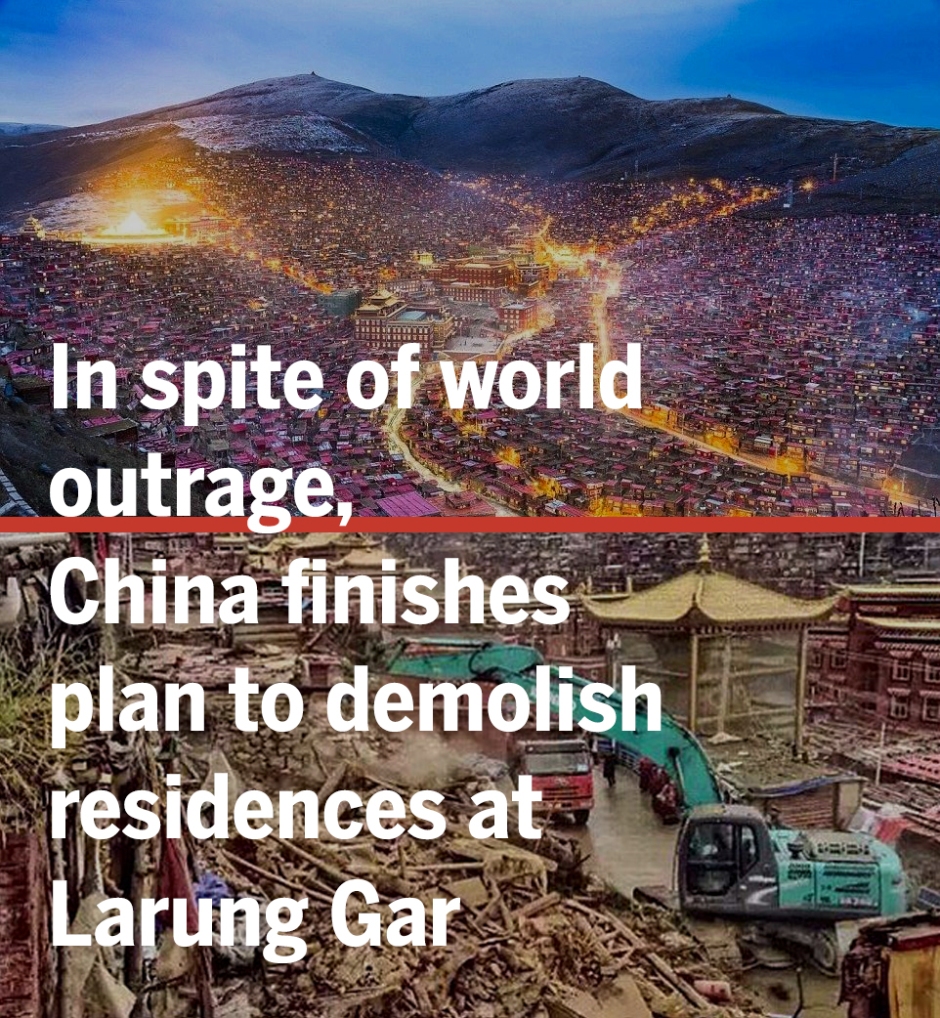

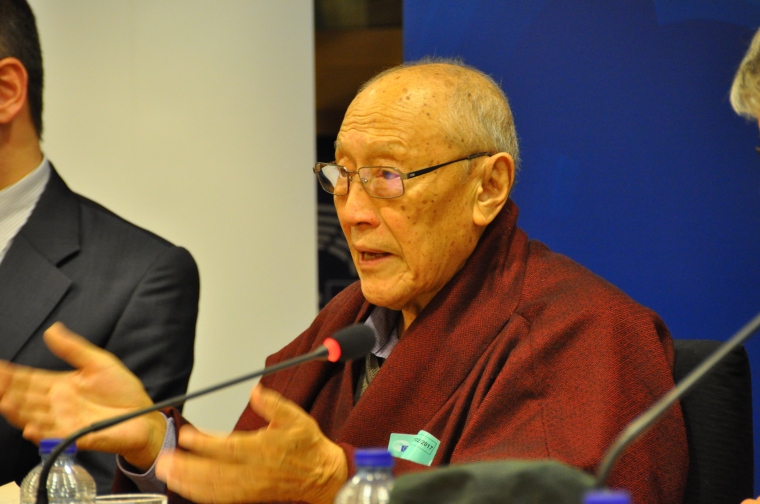
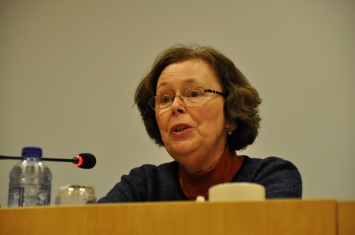
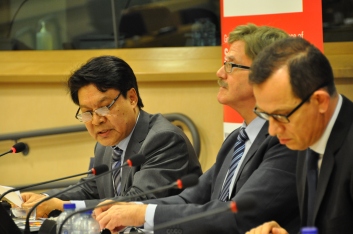 rks of His Holiness the Dalai Lama made in Delhi repeating the stand. Finally he quoted from His Holiness the Dalai Lama’s 2011 September 24 public statement on the issue, “When I am about ninety I will consult the high Lamas of the Tibetan Buddhist traditi
rks of His Holiness the Dalai Lama made in Delhi repeating the stand. Finally he quoted from His Holiness the Dalai Lama’s 2011 September 24 public statement on the issue, “When I am about ninety I will consult the high Lamas of the Tibetan Buddhist traditi
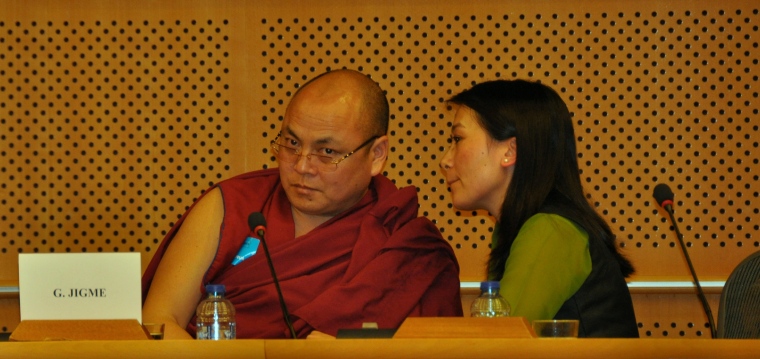



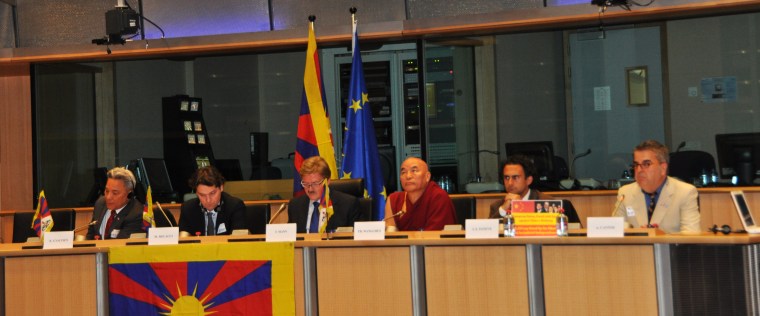

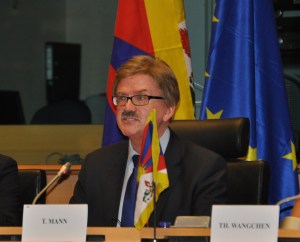

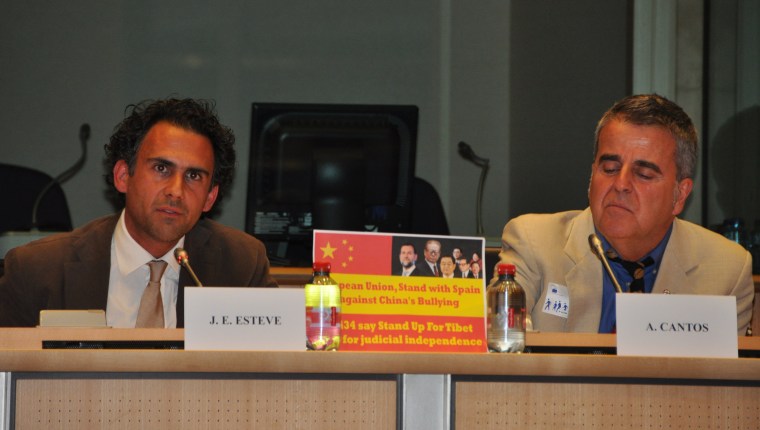
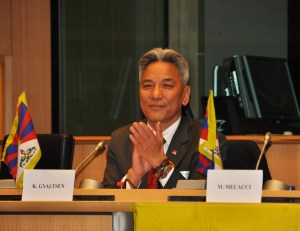

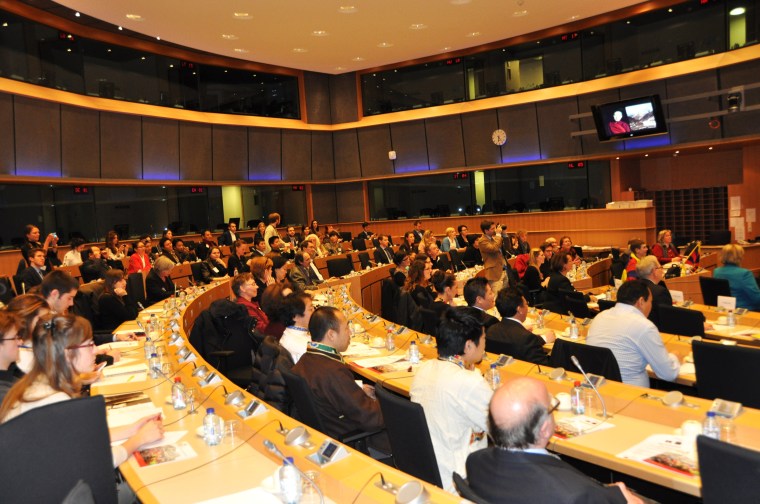


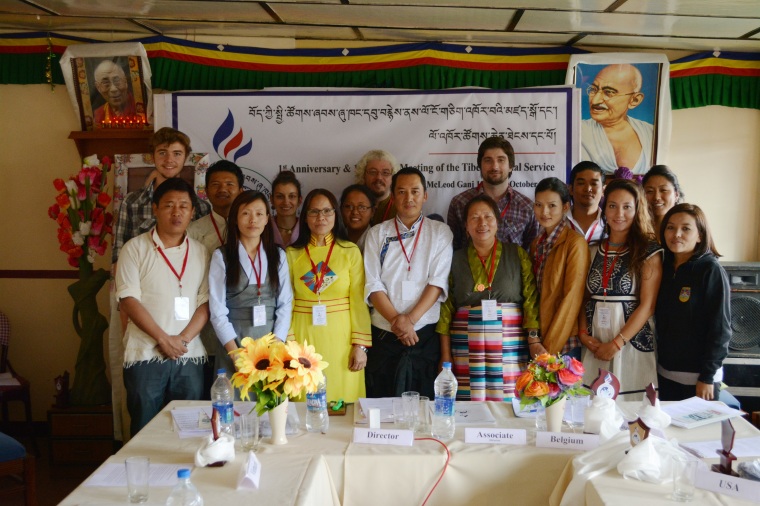
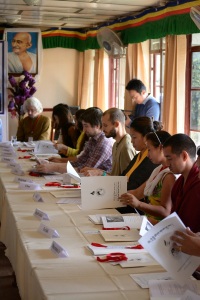
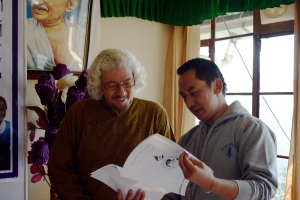
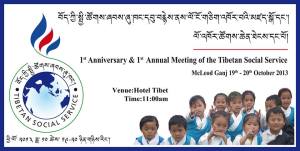

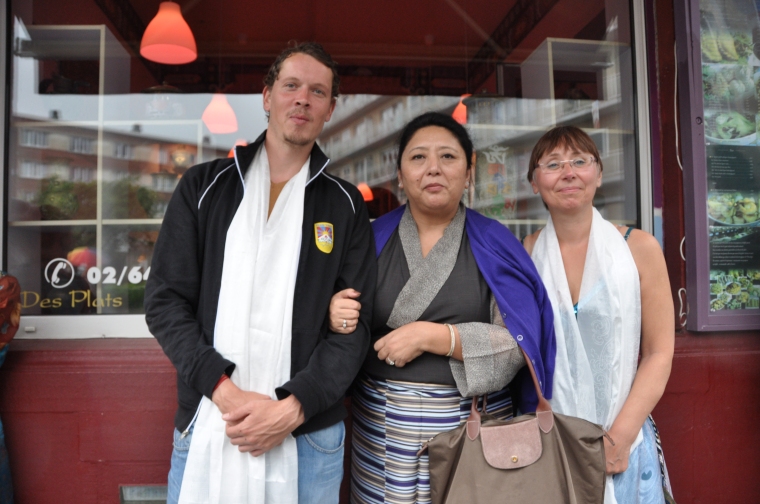
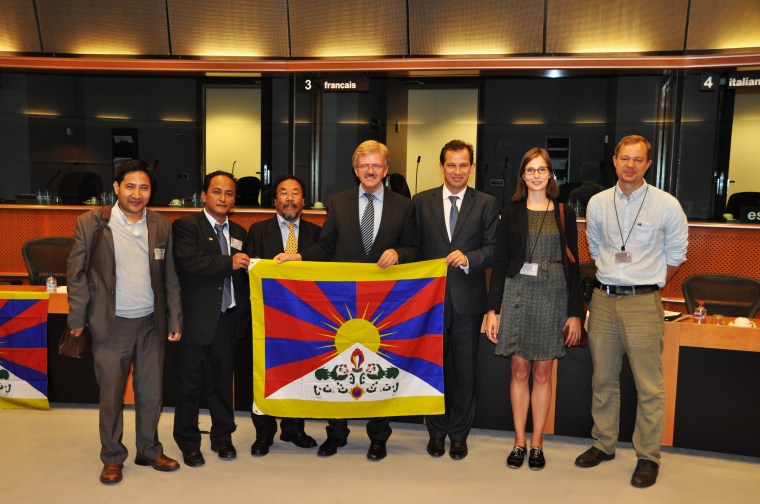
 ating in the conference about this very important subject, the damaged environment in Tibet. “The environment in Tibet has undergone many changes, due to the global climate change, deforestation and depopulation. We warmly welcome Mr. Tenzin Norbu from Dharamsala in India and we are looking forward to hear his speech. We at the European Parliament are united, there is a lot of solidarity and unity for Tibet among many Members of the European Parliament.”
ating in the conference about this very important subject, the damaged environment in Tibet. “The environment in Tibet has undergone many changes, due to the global climate change, deforestation and depopulation. We warmly welcome Mr. Tenzin Norbu from Dharamsala in India and we are looking forward to hear his speech. We at the European Parliament are united, there is a lot of solidarity and unity for Tibet among many Members of the European Parliament.” ent are the destructive industries, for example mining by the Chinese in Tibet on a large scale. Sometimes there are tragic incidents in the mining like the one in March 2013 when 83 miners got killed.”
ent are the destructive industries, for example mining by the Chinese in Tibet on a large scale. Sometimes there are tragic incidents in the mining like the one in March 2013 when 83 miners got killed.” esources. In Shigatse there have been lots of protests against the mining in 2010, but also in Shifang, Sichuan, in July 2012. “In 2010 there have been 15 different mining protests in Tibet, and 4 protests in 2012. Thousands of people in total have protested. The locals raised their voice and sometimes the protest was successful and the mining was stopped. Such actions give us a huge hope, not just for the Tibetans but for the environment.”
esources. In Shigatse there have been lots of protests against the mining in 2010, but also in Shifang, Sichuan, in July 2012. “In 2010 there have been 15 different mining protests in Tibet, and 4 protests in 2012. Thousands of people in total have protested. The locals raised their voice and sometimes the protest was successful and the mining was stopped. Such actions give us a huge hope, not just for the Tibetans but for the environment.” 